Former NFL running back O.J. Simpson died on Wednesday after a long battle with cancer. He was 76.
“He was surrounded by his children and grandchildren,” a statement from the family said. “During this time of transition, his family asks that you please respect their wishes for privacy and grace.”
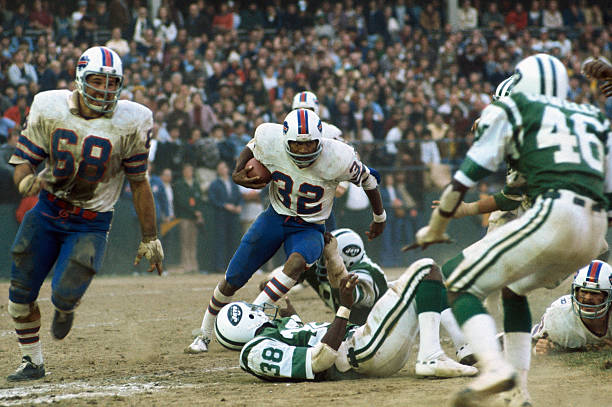
O.J. Simpson of the Buffalo Bills runs during a game against the New York Jets in New York, New York. (Focus On Sport/Getty Images)
Simpson made headlines in February when it was announced that the former NFL player and accused murderer had been diagnosed with prostate cancer. Reports also indicated that Simpson had entered hospice care while he received chemotherapy treatment. However, Simpson himself refuted that report on X.
“Hospice? Hospice? You talking ‘bout hospice?” Simpson said in a video posted to X.
Simpson achieved fame as a college football star at the University of Southern California (USC) and followed that up with a stellar 11-year career in the NFL before launching a successful broadcasting and movie career.
During his time at USC, Simpson was seen as a breaker of racial barriers during the turbulent 1960s.
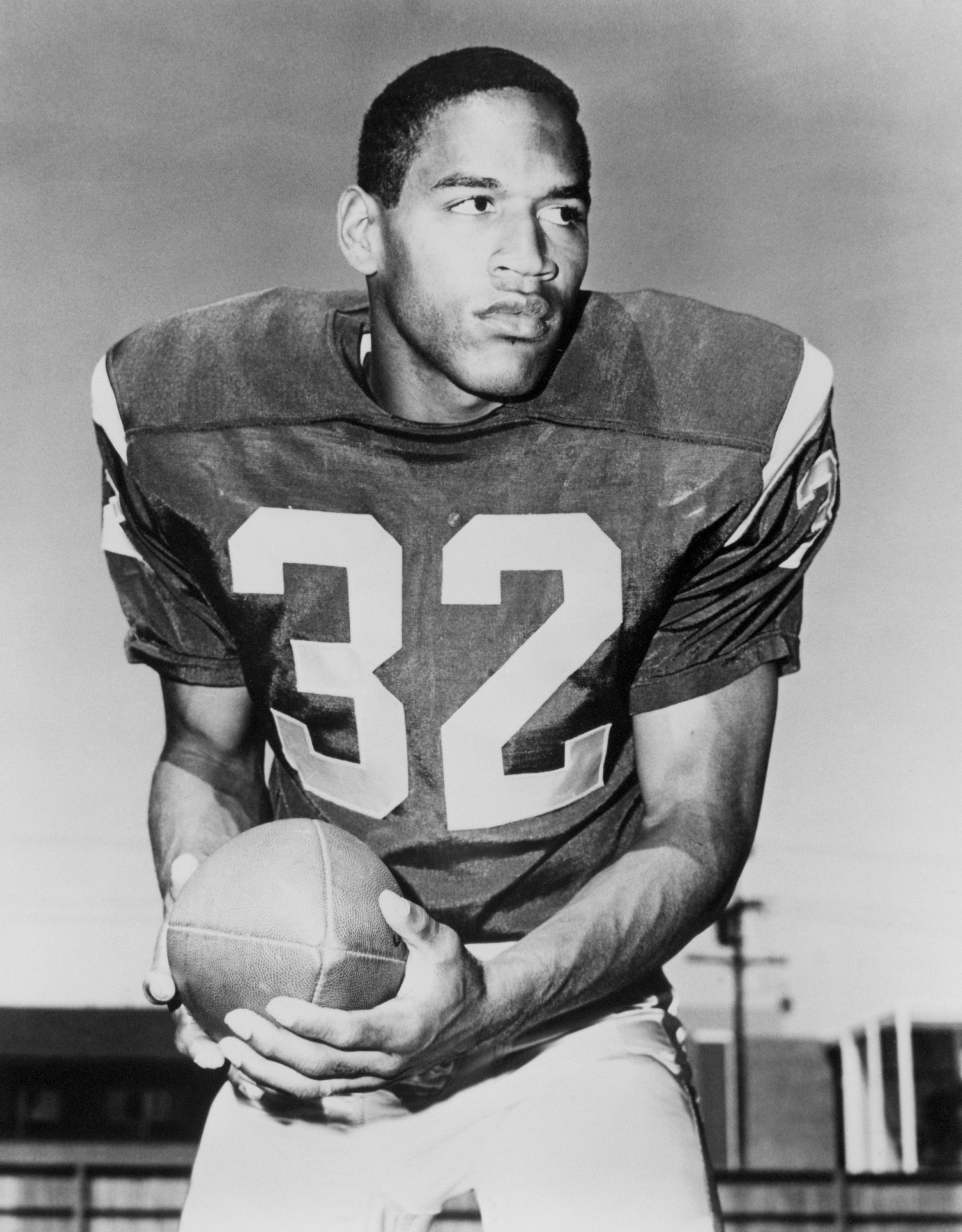
Portrait of USC All-American running back O.J. Simpson. (Getty Images)
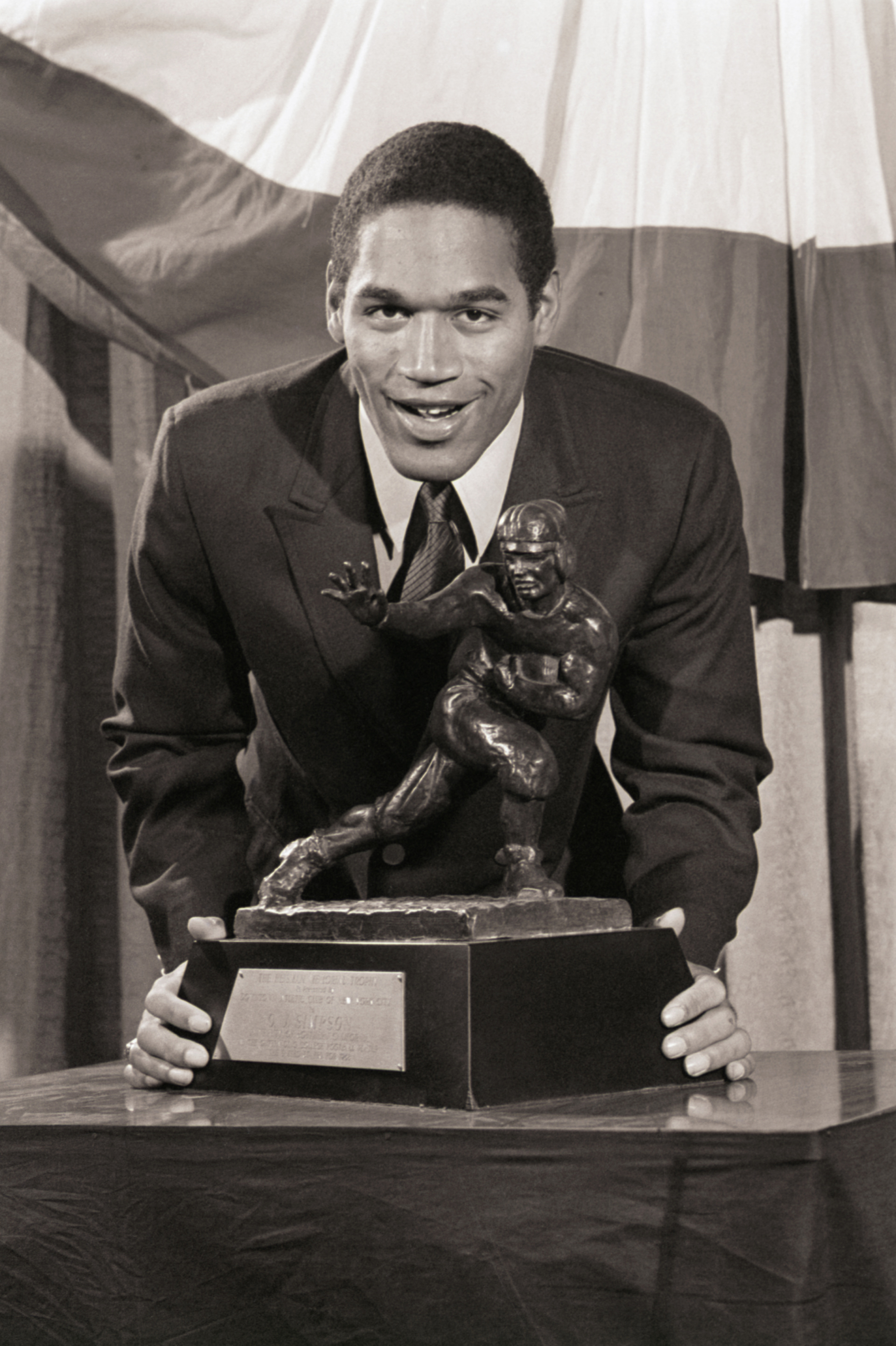
O.J. Simpson of the University of Southern California, the most celebrated collegiate football player of 1968, looms over the Heisman Memorial Trophy he was awarded on Dec. 5, 1968. Simpson was also selected as United Press International Player of the Year. (Focus on Sport via Getty Images)
Simpson was one of the biggest stars in the NFL during his time in Buffalo. In 1973, he became the only player to rush for 2,000 yards in a 14-game season. He also had an 1800-yard season in 1975 and a 1500-yard season in 1976.
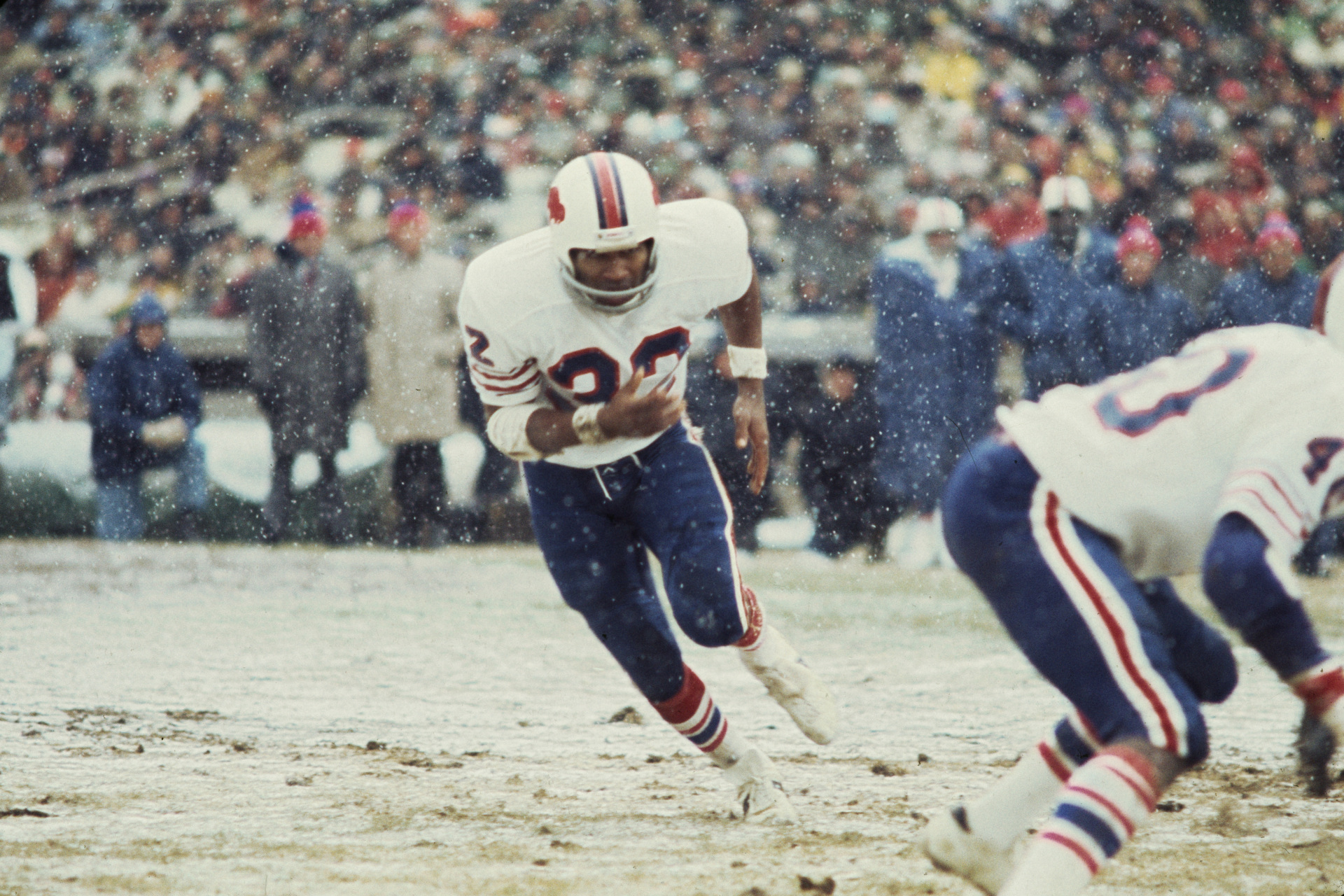
The Buffalo Bills’ OJ Simpson (number 32) in action against the New York Jets in the snow at Shea Stadium, New York, on December 16, 1973. (UPI/Bettmann Archive/Getty Images)
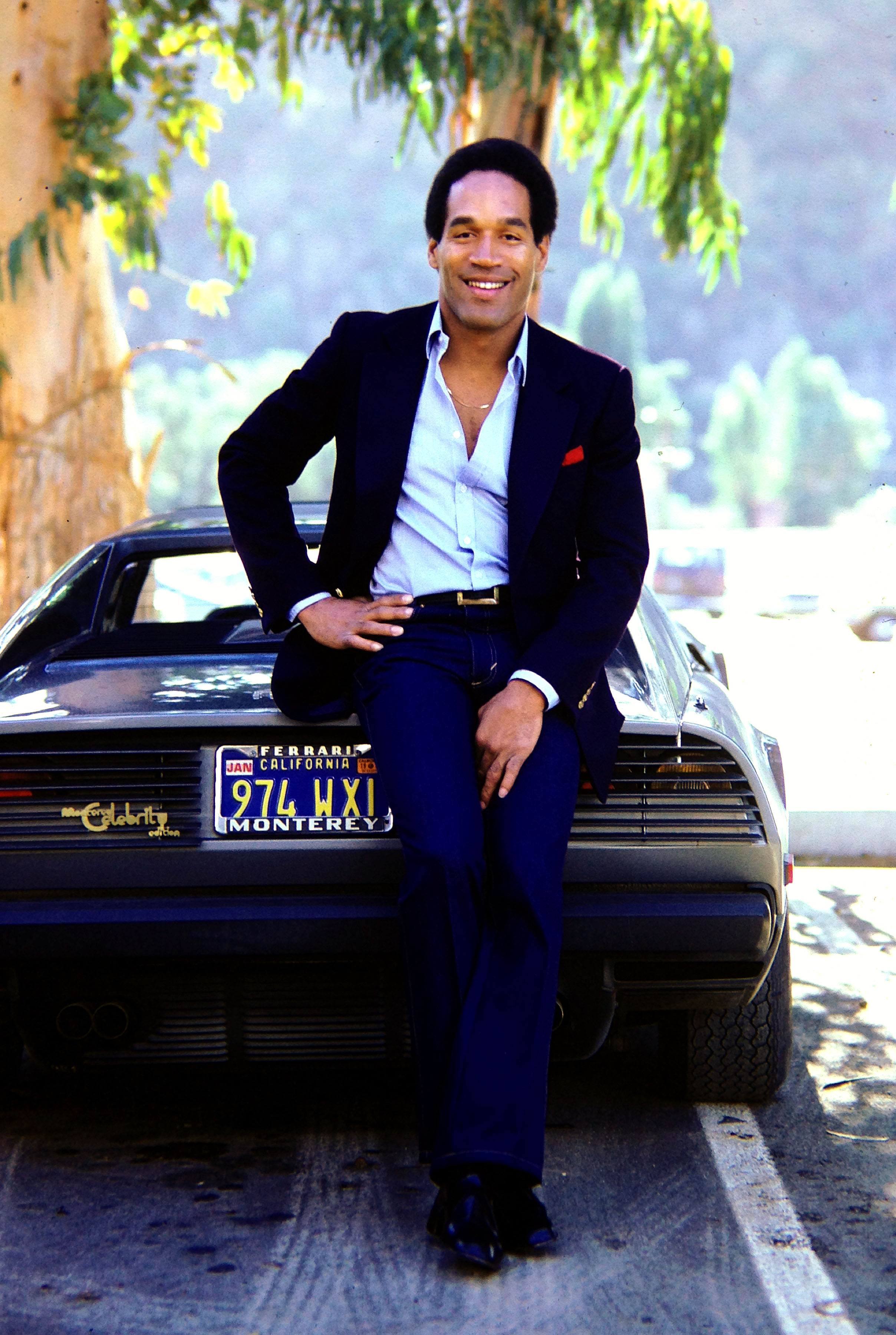
OJ Simpson poses with his Ferrari June 12, 1979, at Warner Bros Studios, Burbank, California (Paul Harris/Getty Images)
Anyone who watched television in the 1980s remembers the Hertz car commercials featuring a running, spinning, and jumping O.J. Simpson as he hurried to make his flight.
The former Heisman Trophy winner also gained notoriety for his work as a network television sports reporter and for his acting career.
As an actor, Simpson had roles in “The Naked Gun: From the Files of Police Squad!” (1988), “The Naked Gun 2½: The Smell of Fear” (1991), “Capricorn One” (1978), and “The Towering Inferno” (1974). He was considered for the title role in “The Terminator,” but producers feared he was “too nice” to be taken seriously as a cold-blooded killer.
Simpson was working on a film called “Frogmen” shortly before his fame gave way to infamy in 1994 when he was charged with the murders of his ex-wife, Nichole Brown Simpson, and her friend, Ron Goldman.
Simpson met Nicole Brown when she was a waitress at the trendy Beverly Hills club The Daisy. Simpson and Brown, who was 12 years his junior, quickly became inseparable. They married in 1985, had two children, Sydney and Justin, and divorced in 1992.
The day he was scheduled to turn himself in to the Los Angeles police, Simpson attempted to flee and led the police on a 90-minute slow speed chase through Los Angeles that was televised live to the world.
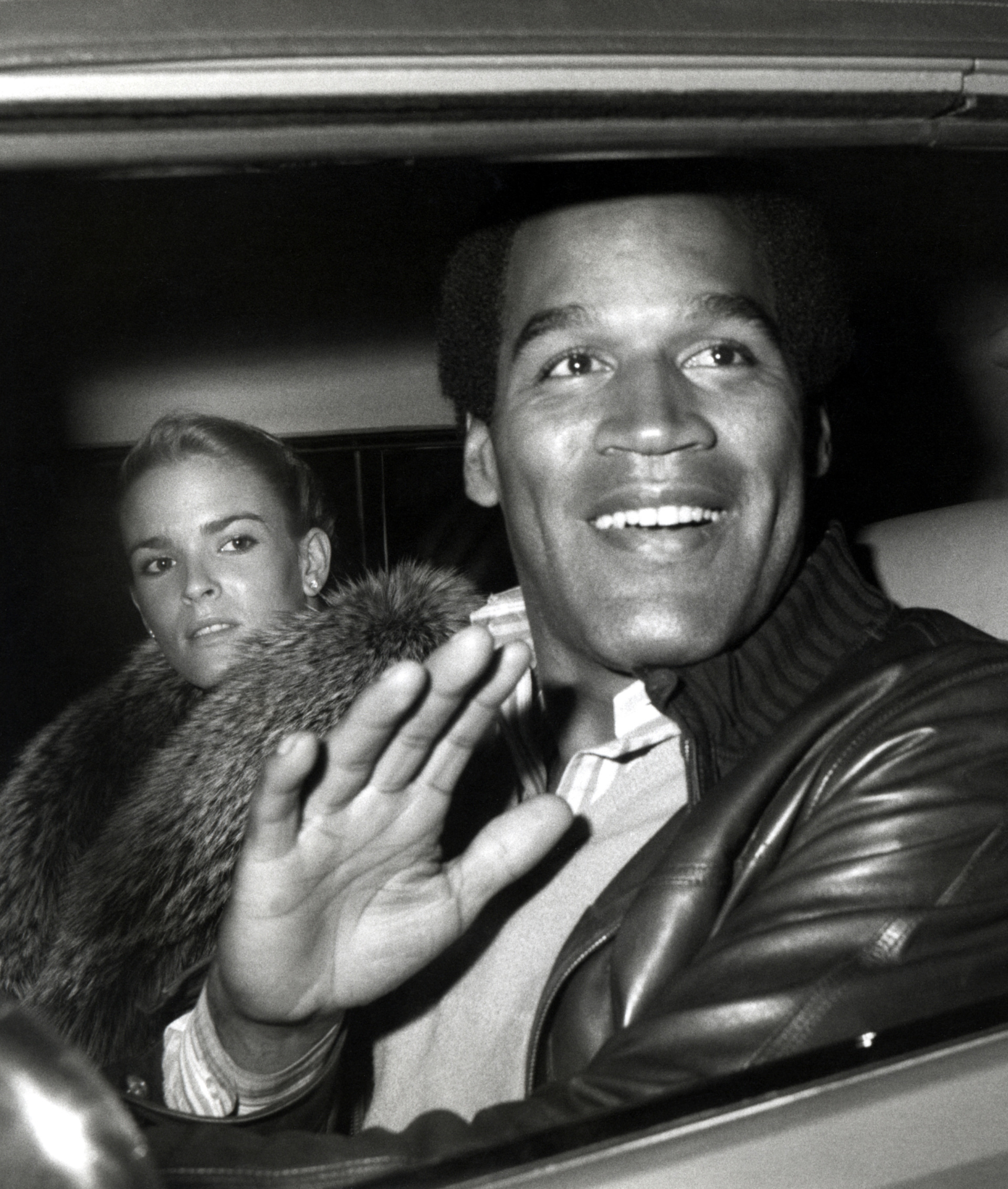
Nicole Brown and O.J. Simpson in Los Angeles, California. (Betty Galella/Ron Galella Collection via Getty Images)
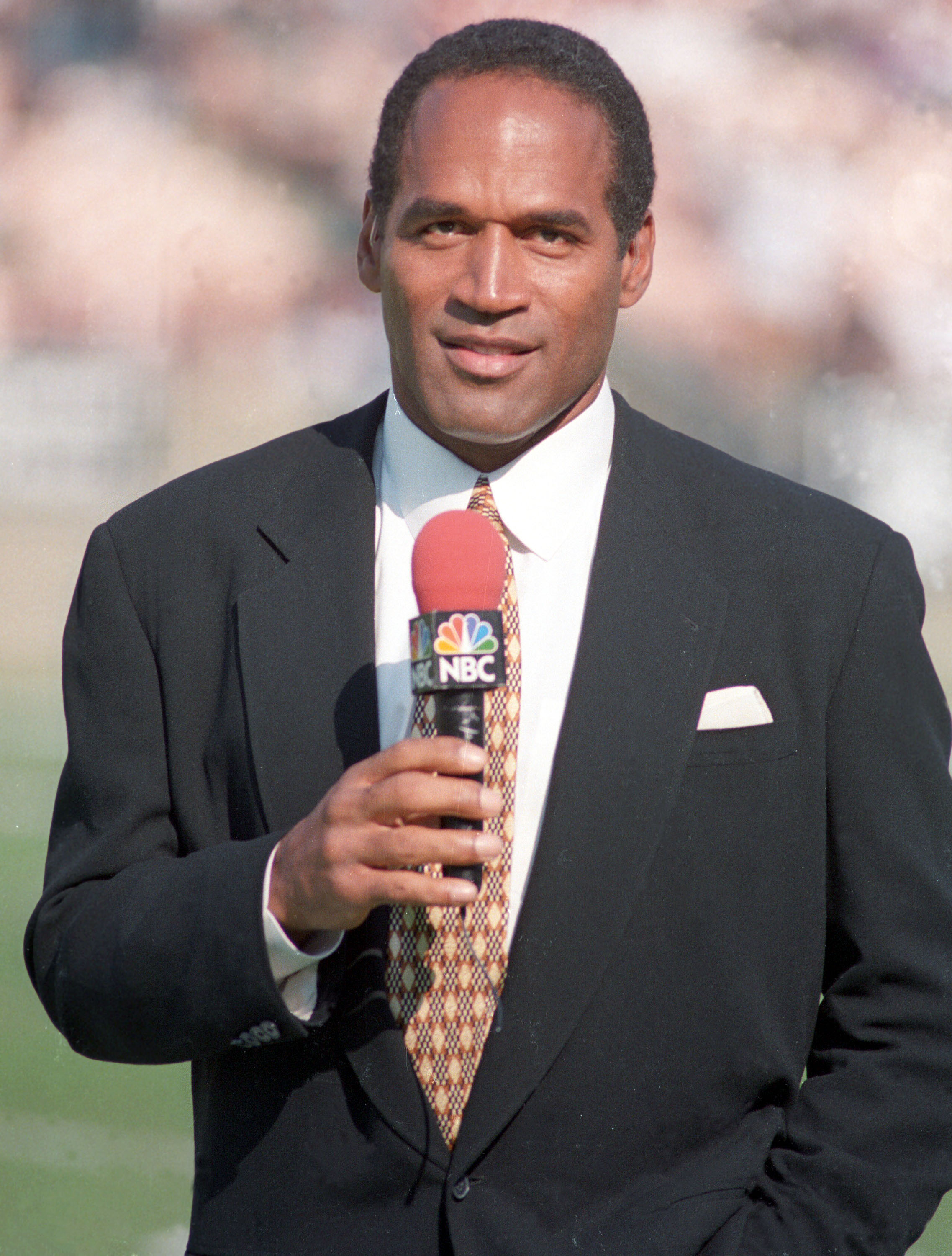
O.J. Simpson serves as an NBC Sports sideline reporter for playoff game between the Denver Broncos and Oakland Raiders at the Los Angeles Memorial Coliseum on Jan. 9, 1994. (Kirby Lee/WireImage)
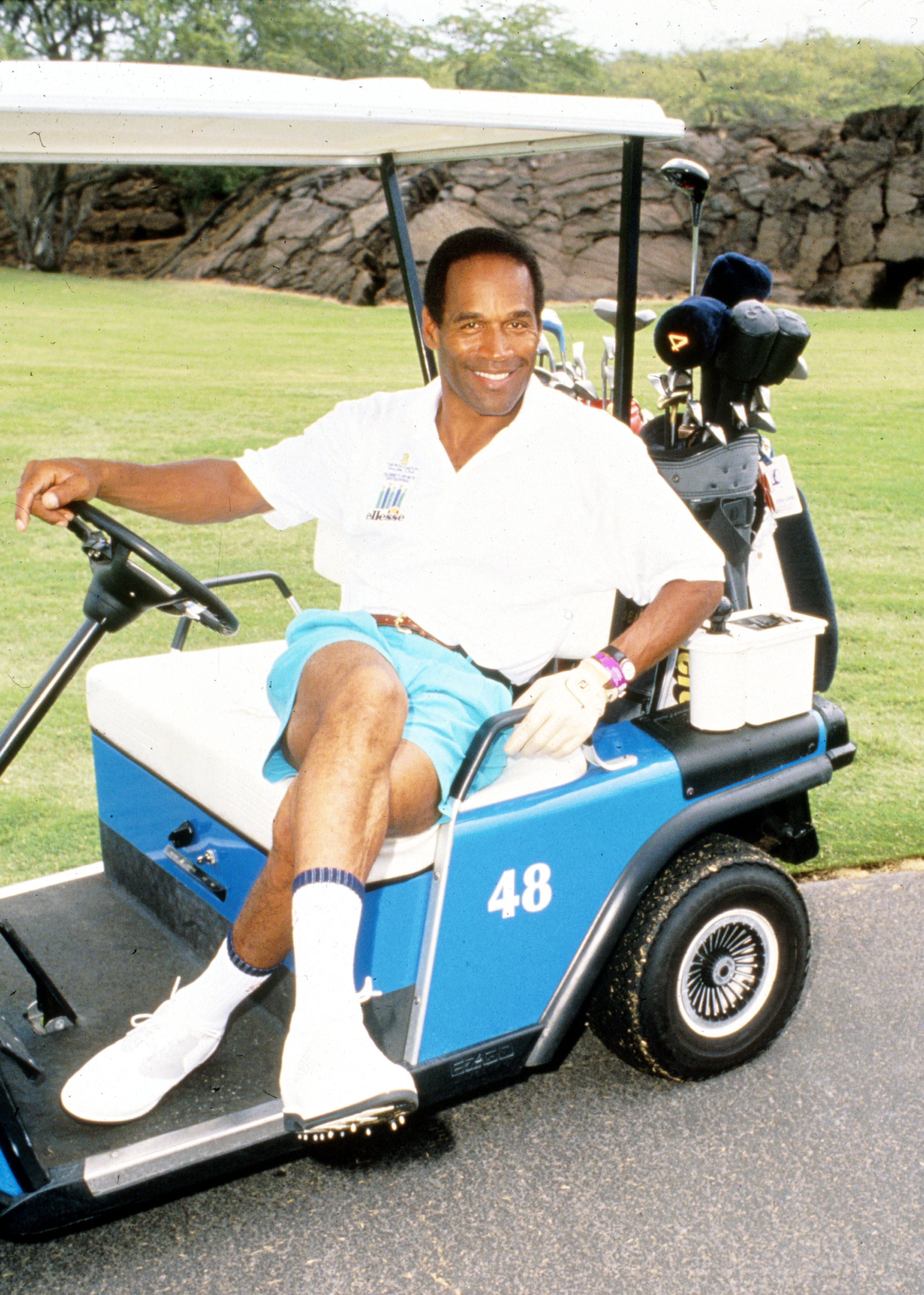
O.J. Simpson in Los Angeles, California, circa 1990s. (SGranitz/WireImage via Getty Images)
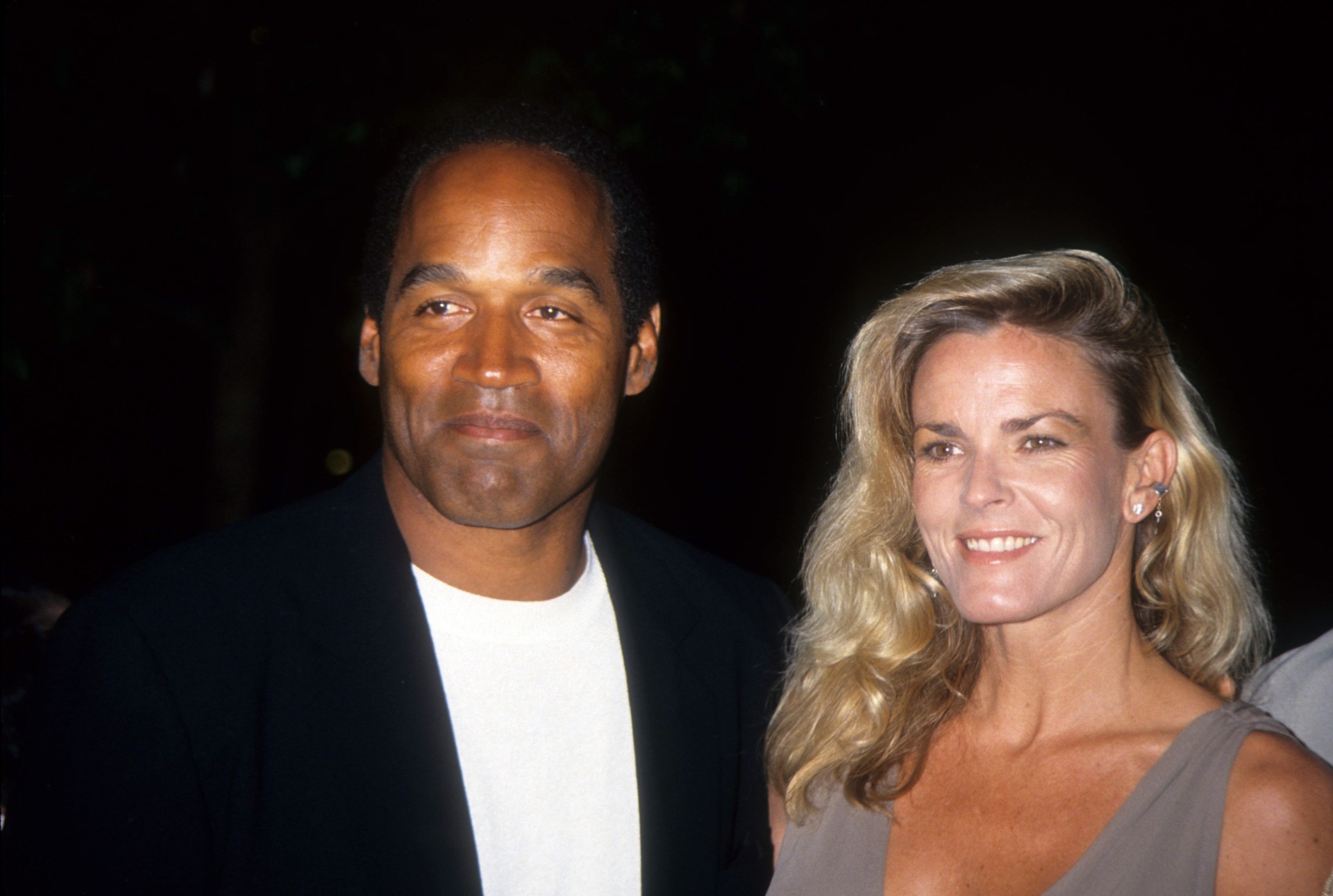
O.J. Simpson and Nicole Brown Simpson pose at the premiere of the “Naked Gun 33 1/3: The Final Insult” in which O.J. starred on March 16, 1994, in Los Angeles, California. (Kypros/Getty Images)
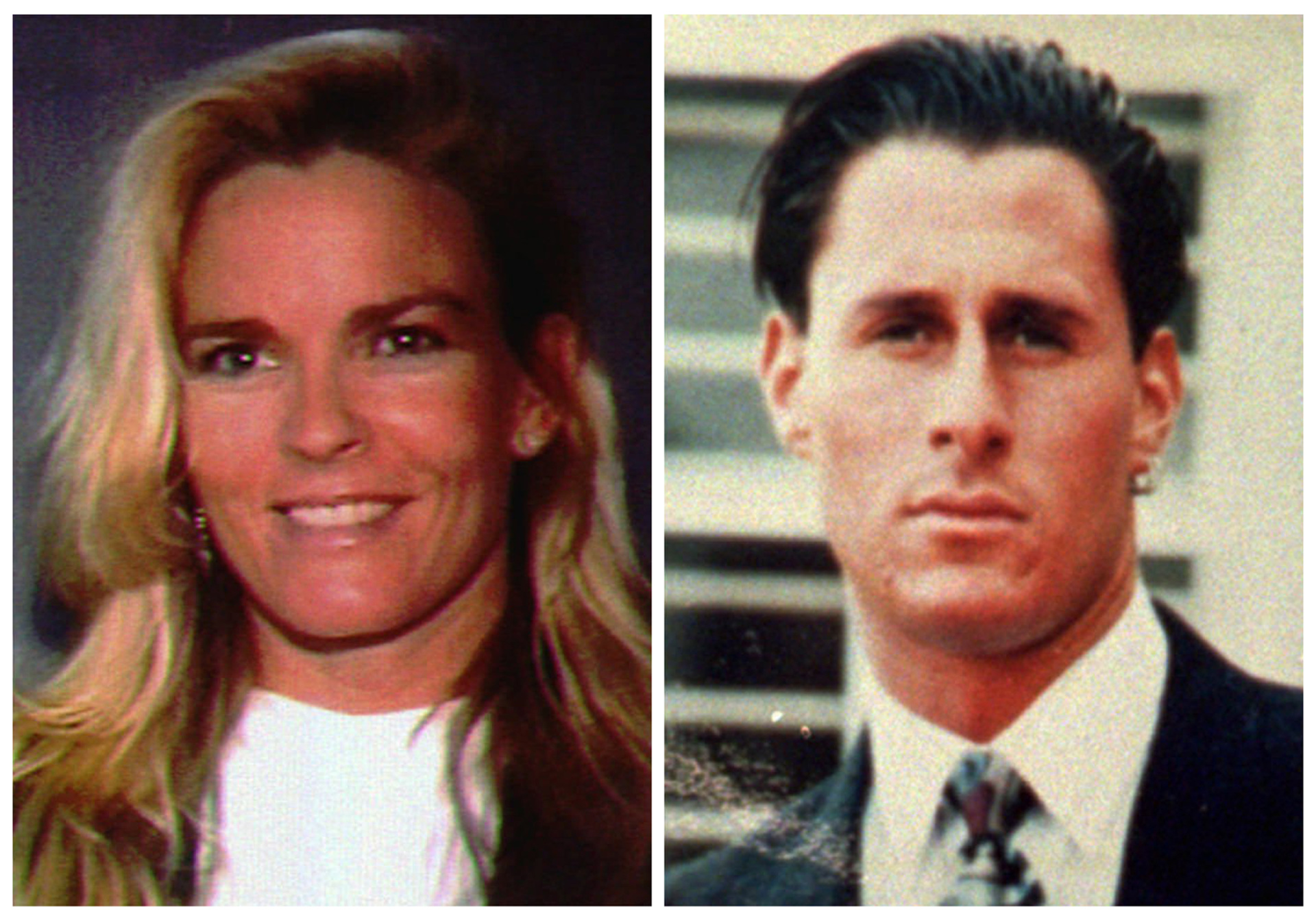
O.J. Simpson’s ex-wife Nicole Brown Simpson, left, and her friend Ron Goldman, both of whom were murdered and found dead in Los Angeles on June 12, 1994. O.J. Simpson was arrested in connection to the murder and acquitted of the crime. (AP Photo)
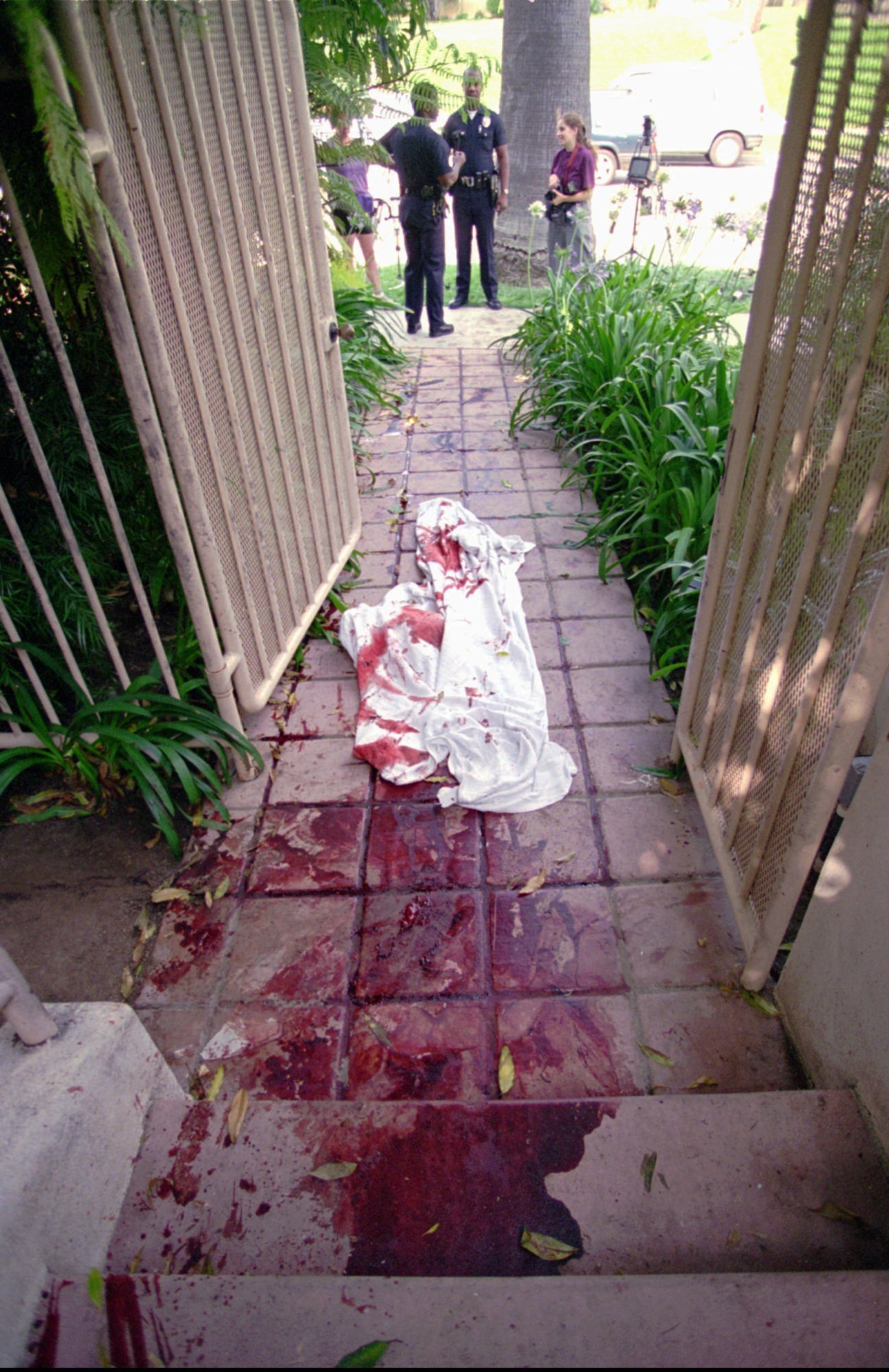
In this June 13, 1994 photo, blood-stained sheets are strewn along the entryway of the Los Angeles-area condominium of Nicole Brown Simpson after she and her friend Ronald Goldman were found dead. (AP Photo/Eric Draper)
The infamous white Ford Bronco chase caused one television station to rearrange coverage of an NBA Finals game, featuring the chase on the main screen and the game as an inset. Nearly every network was broadcasting the chase as it headed toward the cemetery where his ex-wife was buried, then wound back to Simpson’s house.
Cameras in helicopters showed Simpson holding a gun to his head as his friend Al Cowlings drove. Because the chase was so slow, huge crowds had time to gather on overpasses, where they cheered wildly when he drove by.
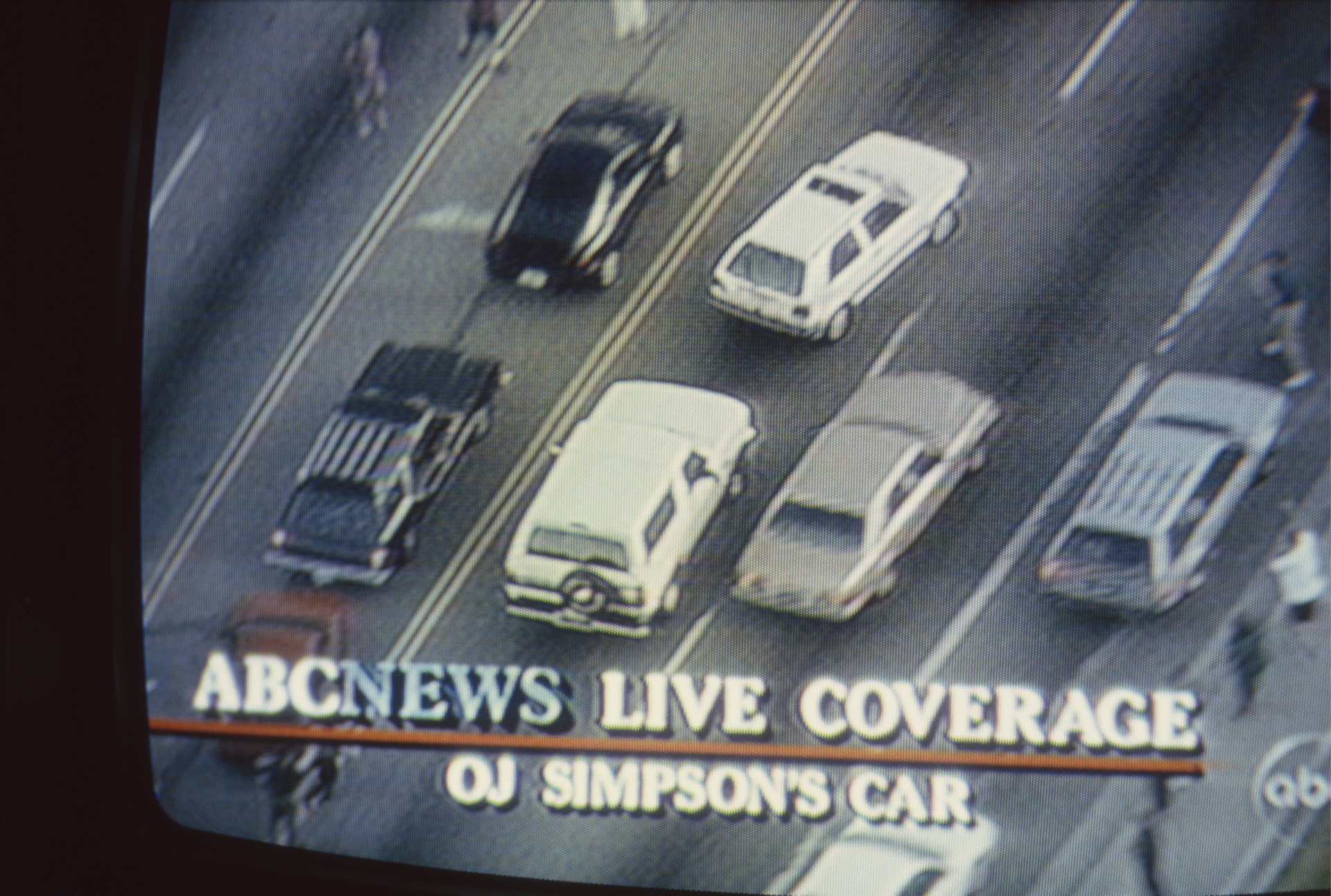
A television screen image of the ABC News live coverage of O.J. Simpson’s car chase. (Rick Maiman/Sygma via Getty Images)
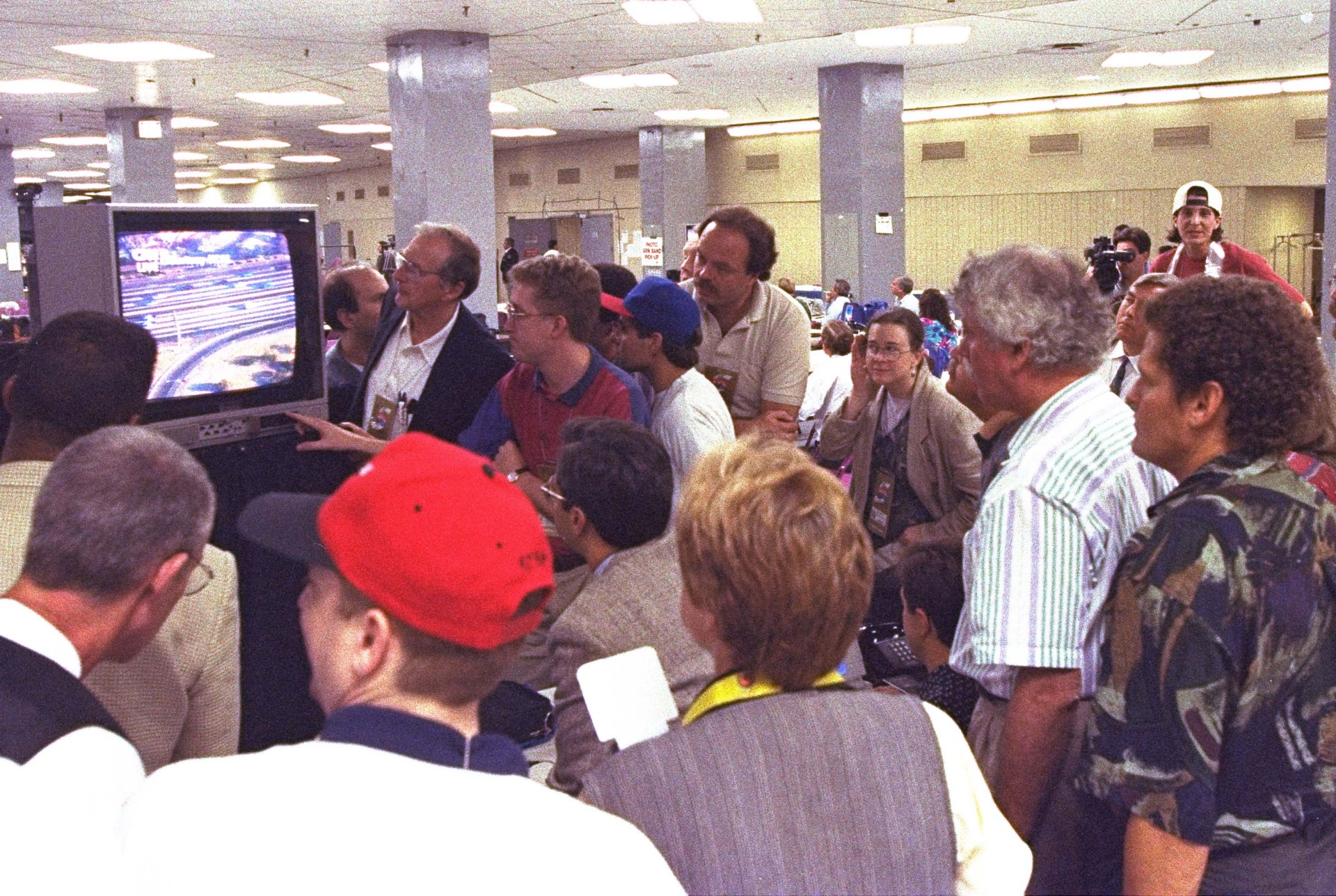
Members of the news media watch live television coverage of the O.J. Simpson driving on Los Angeles freeways during game five of the NBA finals Friday night, June 17, 1994, at New York’s Madison Square Garden. (AP Photo/Ron Frehm)
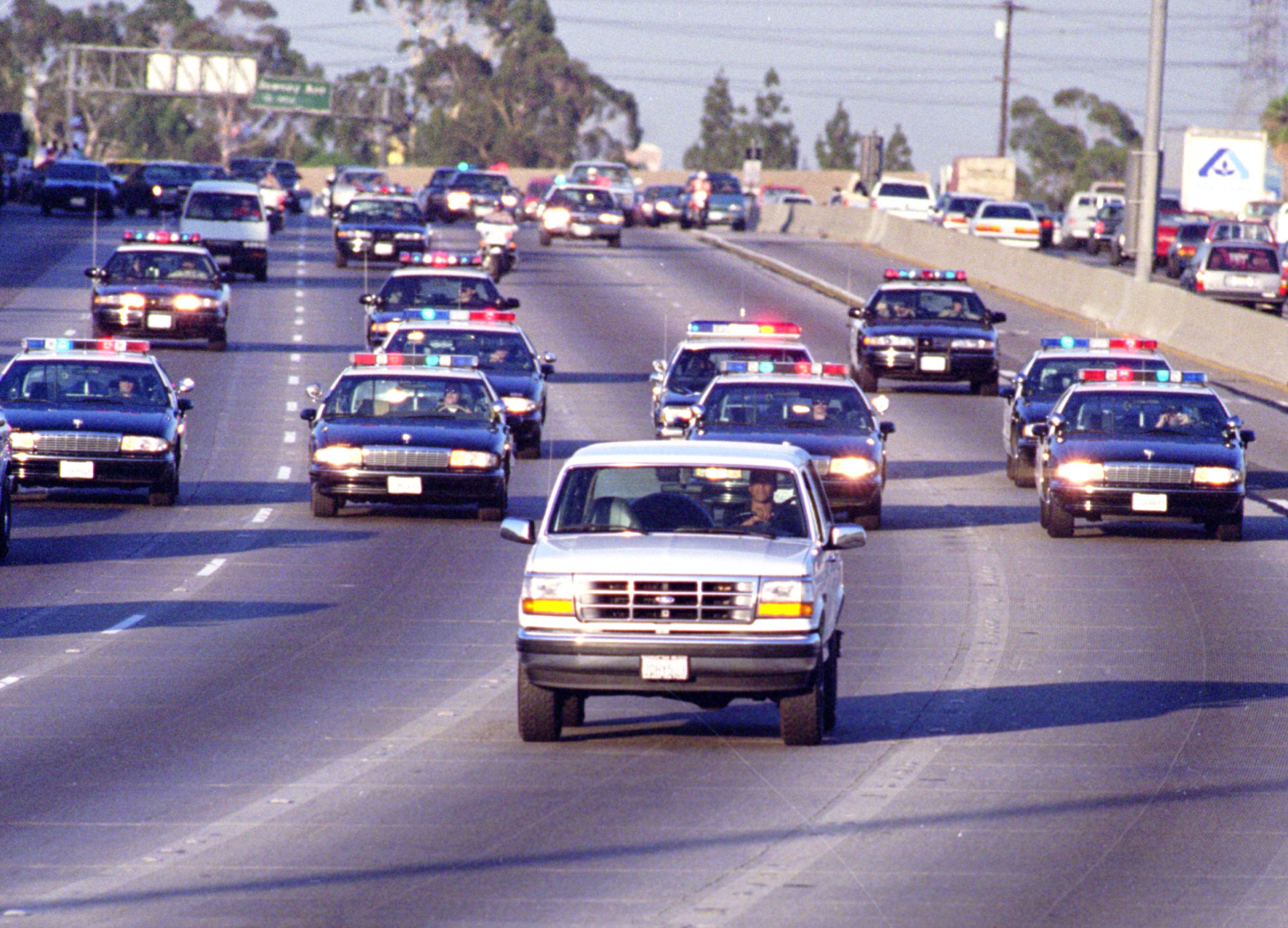
California Highway Patrol chase Al Cowlings, driving, and O.J. Simpson, hiding in rear of white Bronco on the 91 Freeway, just West of the I5 freeway. The chase ended in Simpson’s arrest at his Brentwood home. (Allen J. Schaben/Los Angeles Times via Getty Images)
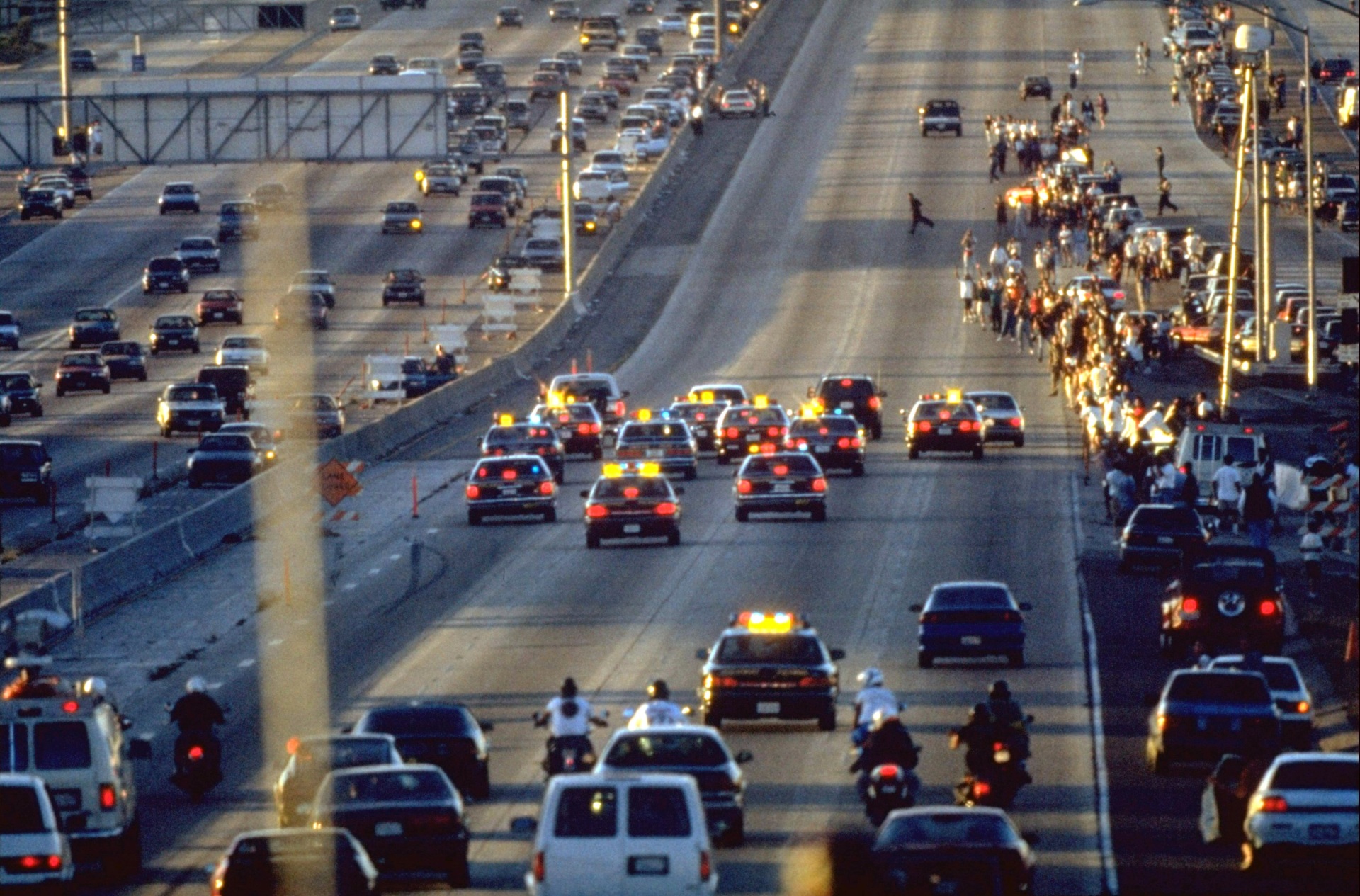
View of the crowds beginning to assemble on either side of the freeway as the police zero in on O.J. Simpson’s white Ford Bronco. (Peter Read Miller/Sports Illustrated via Getty Images)
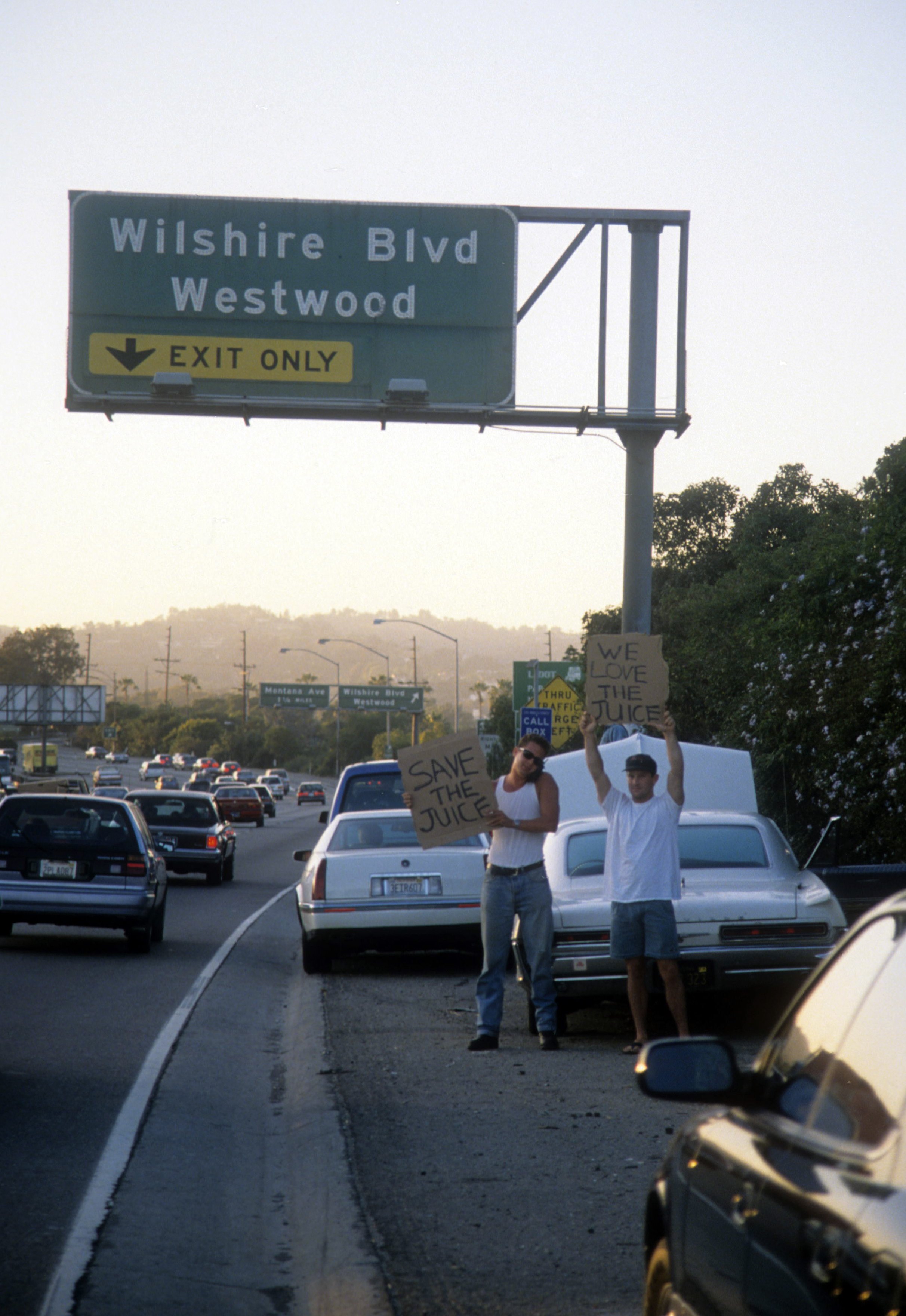
Motorists wave signs in support of O.J. Simpson as police cars pursue the white Ford Bronco driven by Al Cowlings, carrying fugitive murder suspect O.J. Simpson, on a 90-minute slow-speed car chase June 17, 1994 on the 405 freeway in Los Angeles, California. (Vinnie Zuffante/Getty Images)
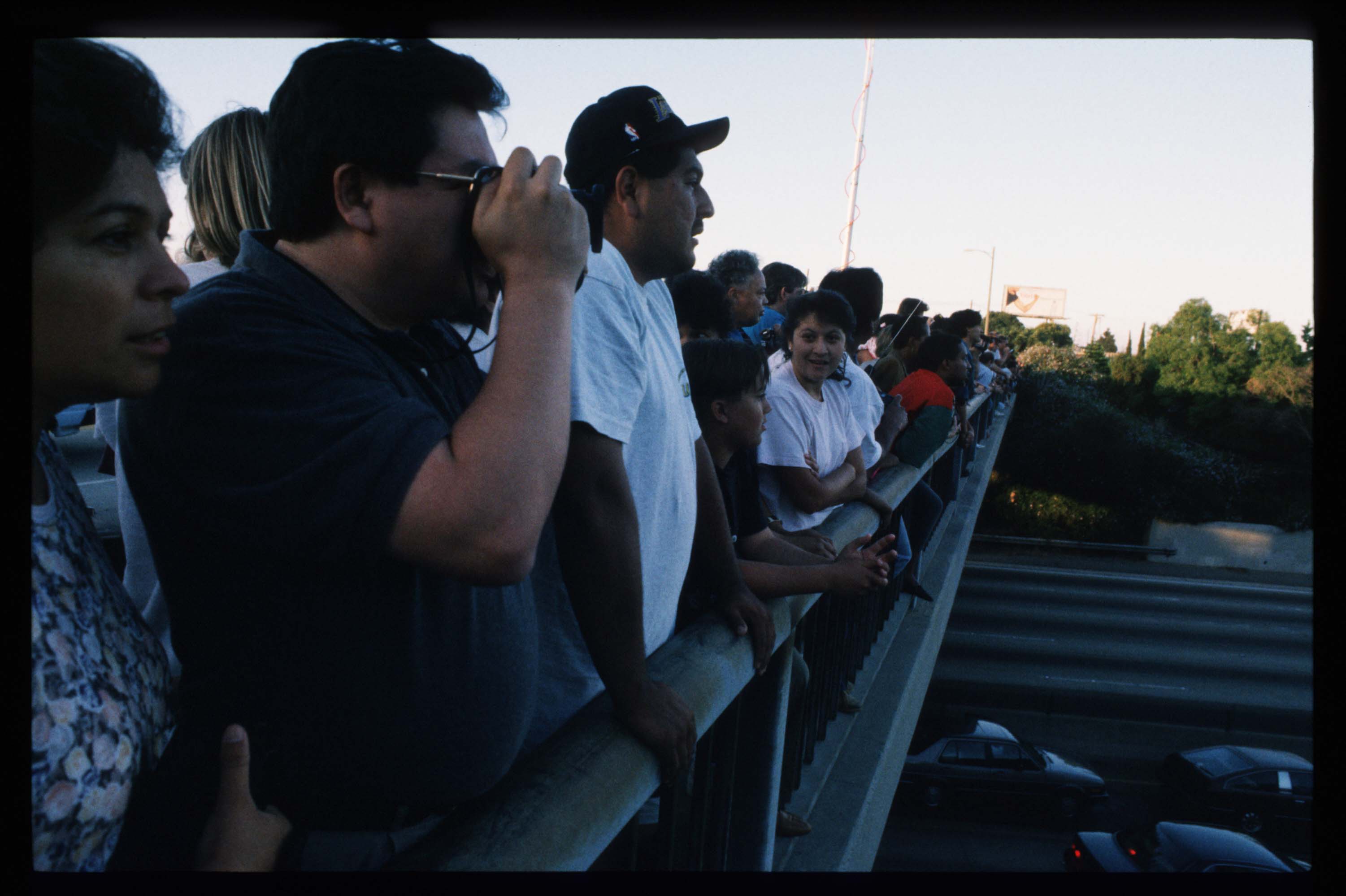
People watch from the freeway overpass as police cars pursue a white Ford Bronco carrying fugitive murder suspect O.J. Simpson on a 90-minute slow-speed car chase June 17, 1994, on the 405 freeway in Los Angeles, California. (Jean-Marc Giboux/Liaison)
Simpson’s trial in 1995 was called “the trial of the century” and became a major media event with live courtroom coverage of it running for months. The trial sparked intense debates on race, domestic abuse, celebrity justice, and police misconduct.
He was eventually acquitted of the double murder criminal charges. The verdict came as a shock to many who believed that the DNA evidence collected from the crime scene and Simpson’s home on the night of the murders were clear proof of his guilt.
However, Simpson had assembled one of the finest legal teams–which the media dubbed “the dream team”–in the country, and his defense lawyers successfully called into question the reliability of the Los Angeles Police Department’s handling of the DNA evidence, as well as the credibility of LA Police Detective Mark Furhman, who played a key role in collecting the evidence at Simpson’s home on the night of the murders and was later revealed to have perjured himself when he falsely denied ever using racial epithets.
Simpson’s defense team also called into question the fit of a pair of gloves that the prosecution alleged that Simpson wore during the murders. Lead defense attorney Johnnie Cochran famously told the jury that if the gloves “don’t fit, you must acquit.”
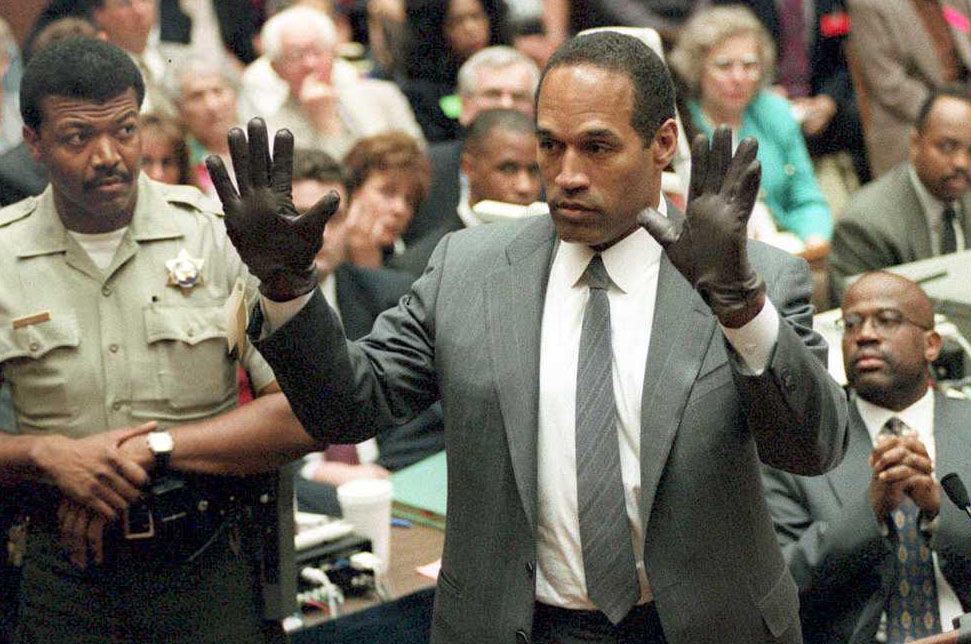
O.J. Simpson shows the jury a pair of Aris extra-large gloves, similar to the gloves found at the Bundy and Rockingham crime scene on June 21, 1995, during his double murder trial in Los Angeles, CA. Deputy Sheriff Roland Jex (left) and Prosecutor Christopher Darden (right) look on. (VINCE BUCCI/AFP via Getty Images)
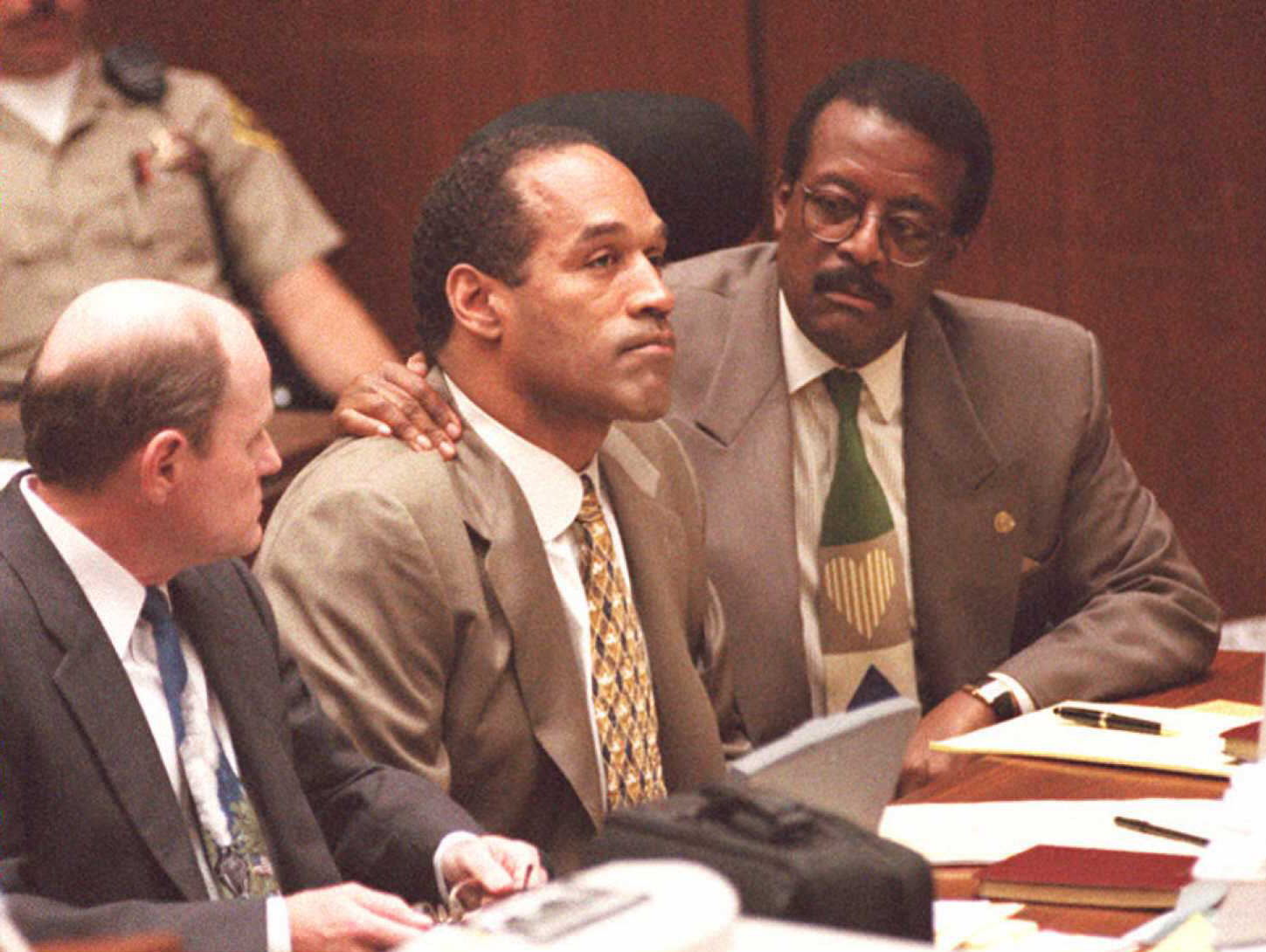
Lead defense attorney Johnnie Cochran (right) puts his arm on O.J. Simpson’s shoulder after Simpson told Judge Lance Ito on September 22, 1995, that he has faith that jurors will acquit him of the murder of his ex-wife Nicole Simpson and her friend, Ronald Goldman. At left is defense attorney Robert Blasier. (Getty Images)
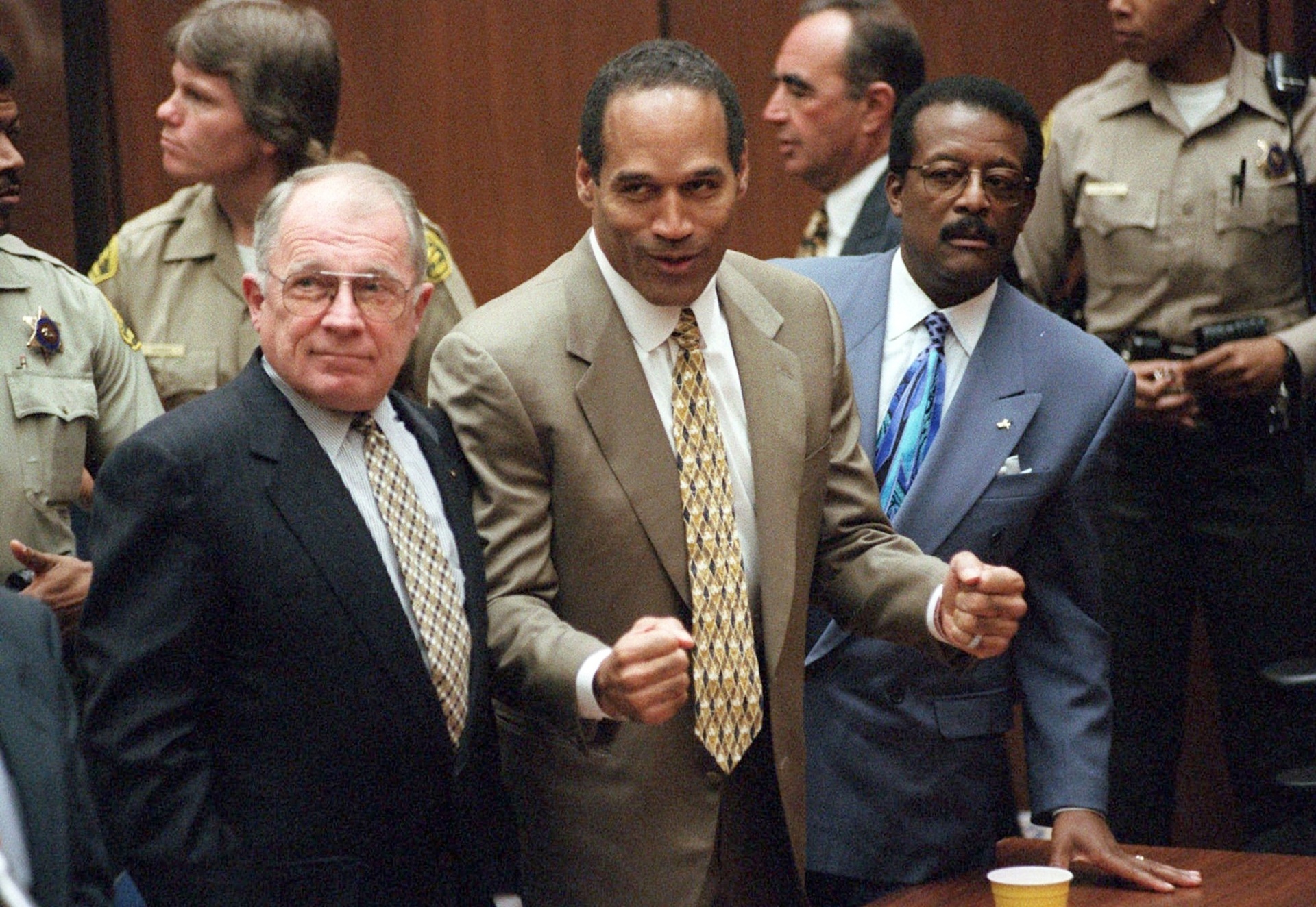
O.J. Simpson reacts as he is found not guilty in the death of his ex-wife Nicole Brown Simpson and her friend Ron Goldman in Los Angeles. Defense attorneys F. Lee Bailey, left, and Johnnie L. Cochran Jr. stand with him. (Myung J. Chun/Los Angeles Daily News via AP)
Two years after the criminal trial, a separate civil trial jury found Simpson liable for the deaths and ordered him to pay $33.5 million to family members of Nicole Brown and Ron Goldman.
Twelve years later, following an outpouring of public outrage, Rupert Murdoch cancelled a planned book by the News Corp-owned HarperCollins in which Simpson offered his hypothetical account of the killings. It was to be titled, “If I Did It.”
Ron Goldman’s family, still doggedly pursuing the multimillion-dollar wrongful death judgment, won control of the manuscript. They retitled the book “If I Did It: Confessions of the Killer.”
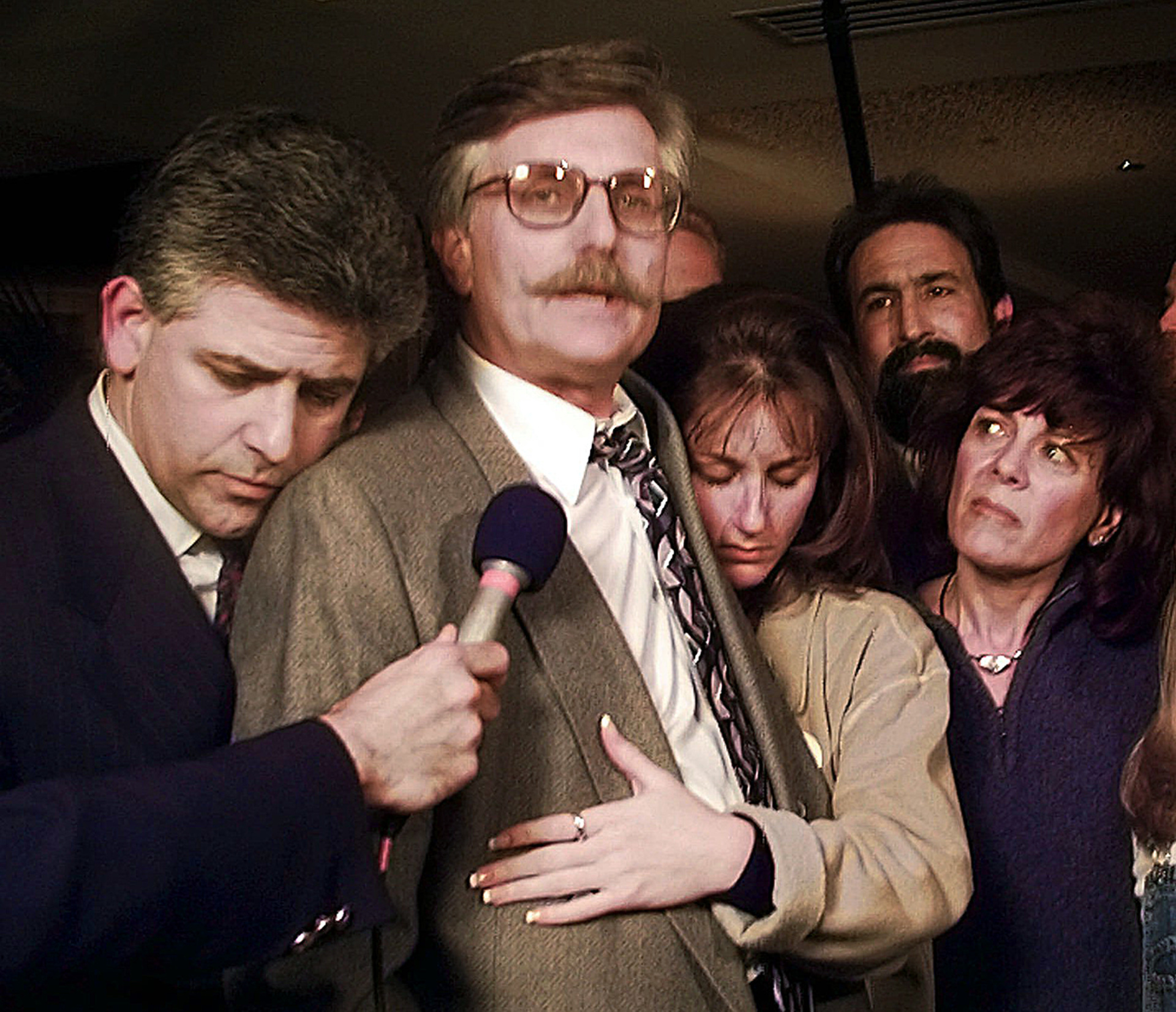
Fred Goldman, center, is hugged by his attorney Daniel Petrocelli, left, and daughter Kim, as his wife Patti, right, looks on, following the verdict in the wrongful death civil suit against O.J. Simpson in Santa Monica, California, on on February 4, 1997. (AP Photo/Nick Ut, File)
“It’s all blood money, and unfortunately I had to join the jackals,” Simpson told The Associated Press at the time. He collected $880,000 in advance money for the book, paid through a third party.
“It helped me get out of debt and secure my homestead,” he said.
Less than two months after losing the rights to the book, Simpson was arrested in Las Vegas.
Still shadowed by the California wrongful death judgment, Simpson had led five men he barely knew into a confrontation with two sports memorabilia dealers in a cramped Las Vegas hotel room. Two men with Simpson had guns. A jury convicted Simpson of armed robbery and other felonies.
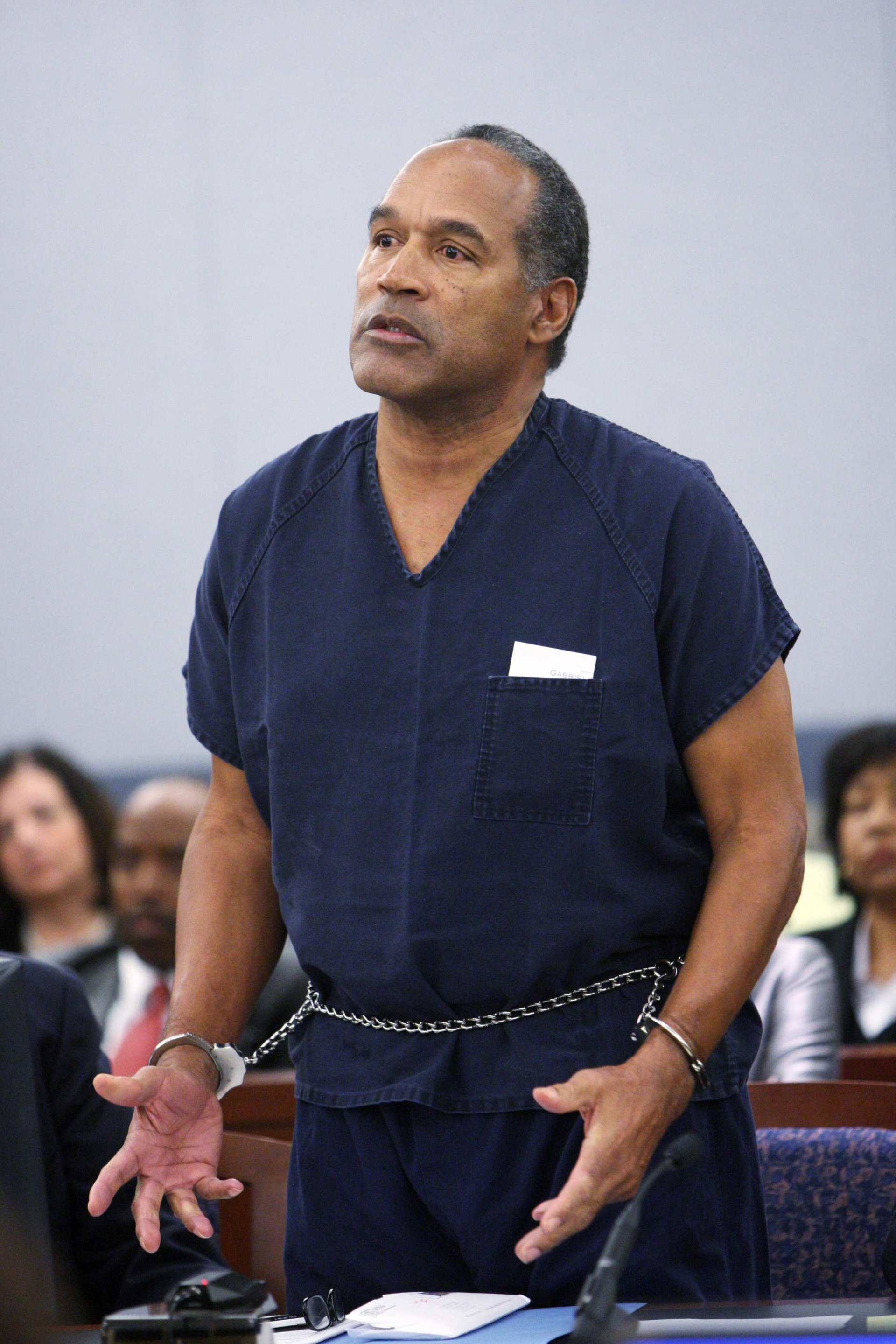
O.J. Simpson speaks in court before his sentencing at the Clark County Regional Justice Center December 5, 2008, in Las Vegas, Nevada. Simpson and co-defendant Clarence “C.J.” Stewart were sentenced on 12 charges, including felony kidnapping, armed robbery and conspiracy related to a 2007 confrontation with sports memorabilia dealers in a Las Vegas hotel. (Issac Brekken-Pool/Getty Images)
Imprisoned at age 61, he served nine years in a remote northern Nevada prison, including a stint as a gym janitor. He was not contrite when he was released on parole in October 2017. The parole board heard him insist yet again that he was only trying to retrieve sports memorabilia and family heirlooms stolen from him after his criminal trial in Los Angeles.
“I’ve basically spent a conflict-free life, you know,” Simpson, whose parole ended in late 2021, said.
“We don’t need to go back and relive the worst day of our lives,” Simpson said of the killings in 2019. “The subject of the moment is the subject I will never revisit again. My family and I have moved on to what we call the ‘no negative zone.’ We focus on the positives.”
Orenthal James Simpson was born July 9, 1947, in San Francisco, where he grew up in government-subsidized housing projects.
After graduating from high school, he enrolled at City College of San Francisco for a year and a half before transferring to the University of Southern California for the spring 1967 semester.
He married his first wife, Marguerite Whitley, on June 24, 1967, moving her to Los Angeles the next day so he could begin preparing for his first season with USC — which, in large part because of Simpson, won that year’s national championship.
Simpson won the Heisman Trophy in 1968. He accepted the statue on the same day that his first child, Arnelle, was born.
He had two sons, Jason and Aaren, with his first wife; one of those boys, Aaren, drowned as a toddler in a swimming pool accident in 1979, the same year he and Whitley divorced.
Simpson and Nichole Brown were married in 1985. They had two children, Justin and Sydney, and divorced in 1992. Two years later, Nicole Brown Simpson was found murdered.
The Associated Press contributed to this story.
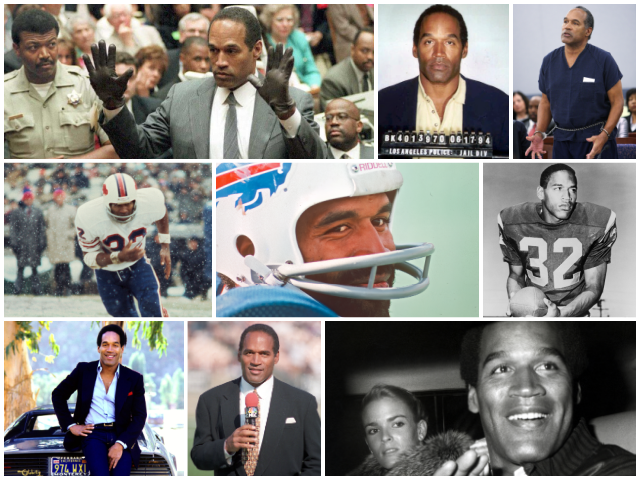
COMMENTS
Please let us know if you're having issues with commenting.